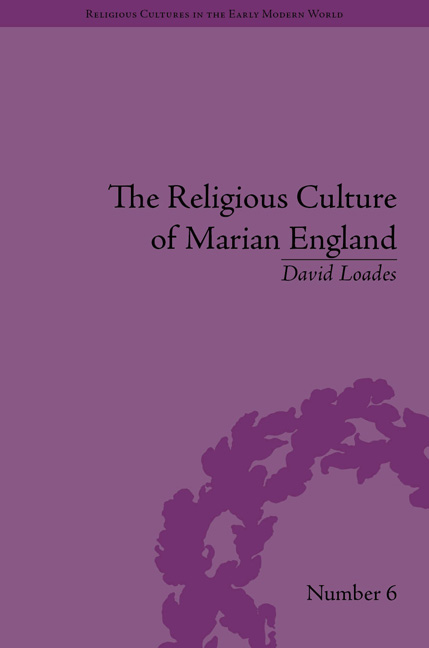Book contents
Preface
Summary
This book has been too long in the writing. It arose originally out of two circumstances. The first was my involvement with the John Foxe Project, which was a British Academy sponsored project for the publication of an online edition of all four versions of the Acts and Monuments for which Foxe was personally responsible (1563, 1570, 1576, 1583). I put this idea to the Academy in 1992, and was its director from 1993 to 2004, when Professor Mark Greengrass took over that responsibility. It was completed in 2008. The second circumstance was a perception that existing histories of the persecution had all been written from an elite point of view, and that in any case much was happening in the Marian Church which had nothing to do with the persecution. These were points which I desired to emphasize.
The most obviously elite studies are Professor Mayer's numerous works on Reginald Pole. It is no criticism of Professor Mayer to point out that these are predominantly about the running of the Church, and to some extent about its spiritual direction. They tell us a great deal about policy and how it was implemented, but nothing very much about what was going on at the parish level. Cardinal Pole was a grandee, with a very keen theological perception and no time at all for ‘superstition’. It was just that his definition of the latter differed from that of his opponents. In so far as he dealt with the laity, it was at the highest political level, where, on the whole, men told him what he wanted to hear. His relationships with the Queen and with King Philip were essential to his role, and his understanding of Mary was profound, but his grasp of the religious mentality of the English was at best imperfect. It was not that they did not take their faith seriously, but that faith tended to be basic and they had been much confused by the different instructions which had been, and were being, issued in God's name.
- Type
- Chapter
- Information
- The Religious Culture of Marian England , pp. vii - viiiPublisher: Pickering & ChattoFirst published in: 2014



